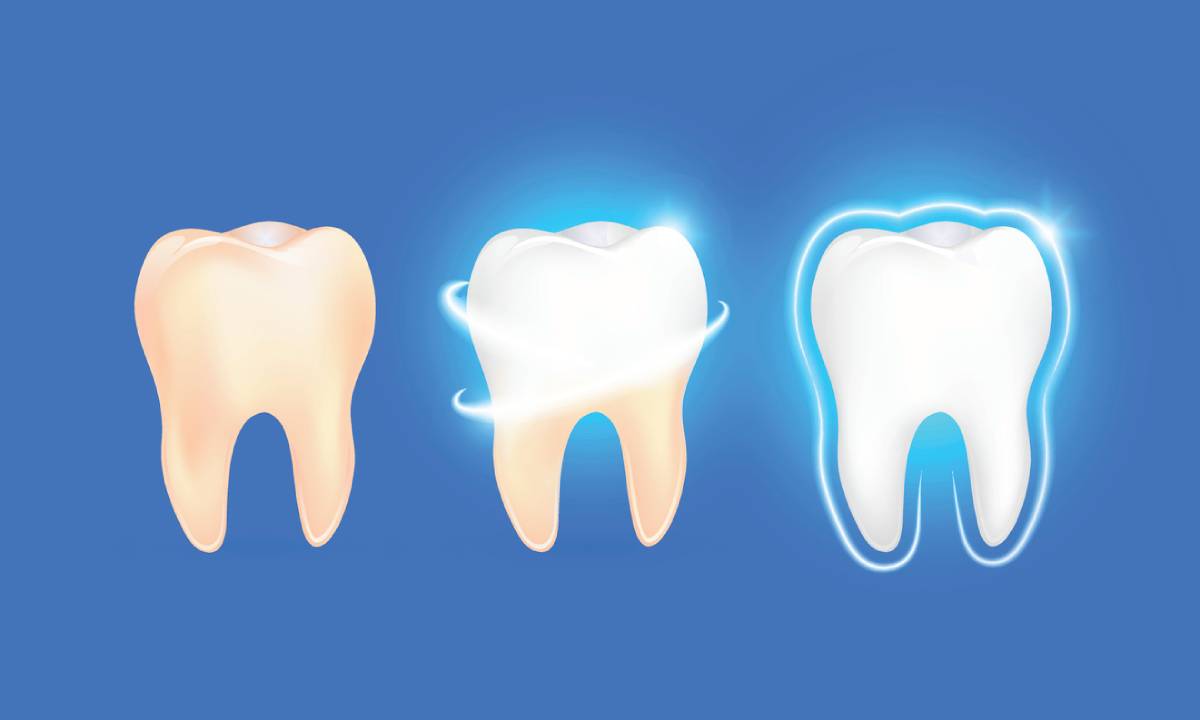It is commonly known that healthy enamel is essential for our teeth. But what do you do if the enamel becomes damaged? Can you replace tooth enamel? Continue reading to learn what treatments are available to restore teeth that have lost their enamel and discover information about preventive dental care options to preserve the enamel before it deteriorates.
Can You Replace Tooth Enamel?
Unfortunately, there are no treatments that can replace tooth enamel. Once a tooth loses its enamel, the enamel is permanently lost. Enamel is a protective layer that prevents bacteria and chewing friction from damaging the tooth. Enamel damage or loss can lead to tooth decay, discoloration, and eventually tooth loss. That is why it is essential to keep the enamel of your teeth strong.
What to Do if a Tooth Loses Its Enamel?
If enamel loss occurs, the tooth will need to be protected from decay and damage. Several treatments can be effective:
- Dental bonding is the application of resin composite to the areas of the tooth where enamel loss occurs. Resin composite is a tooth-colored material that is often used in cosmetic and restorative dentistry (for example, for dental fillings). The layer of resin composite will become a new barrier between the tooth and the bacteria and physical damage, thus protecting the tooth from decay.
- Dental veneers are another method used to create a protective shield for the tooth. They are thin shells made of porcelain or resin composite. The difference between dental bonding and dental veneers is that veneers cover the entire front side of the tooth, while bonding is only used as a “spot treatment.” Thus, if the damage to the enamel is more substantial and affects the entire front surface of your tooth, this method of treatment will most likely be chosen instead of dental bonding.
- Dental crowns can be used in cases when both sides of the tooth and the chewing surface have lost enamel. A crown is a “cap” that is placed on top of the tooth and covers it completely on all sides. Dental crowns can be made of porcelain, zirconia, or metal, such as gold.
Your dentist will be able to accurately assess the amount of damage the enamel of your teeth sustained and recommend the most effective solution in your case. Sometimes, additional treatments, such as dental fillings or root canal therapy, might be needed to deal with tooth decay before placing veneers or crowns or performing dental bonding.
How to Restore Damaged Tooth Enamel
If the enamel of your teeth becomes damaged but is not entirely lost, the main objective is to restore it and prevent its total loss:
- Professional fluoride treatments can help strengthen and remineralize the enamel, making it less vulnerable to bacteria. Dentists recommend undergoing such treatments two times a year. However, if the enamel is significantly weakened, your dentist might recommend having the treatments more frequently.
- Additionally, professional dental cleanings are effective at restraining bacterial growth in the mouth by removing plaque and tartar from the teeth. Bacteria proliferate in plaque and tartar that cover your teeth, gradually destroying the enamel and causing cavities and decay.
There are also several things you can do on a daily basis to prevent enamel damage or help the enamel be restored:
- Maintain good oral hygiene by removing food residue, bacteria, and plaque from your teeth twice a day. Brush your teeth thoroughly with a soft or medium soft-bristled toothbrush to avoid enamel damage. Floss every evening and use a water flosser as the first step of your routine twice a day.
- Rinse your mouth or use a water flosser to remove food residue after every meal.
- Use fluoride toothpaste daily to help the enamel remineralize and fight off bacteria in the mouth.
- Abstain from smoking and use a straw when drinking alcohol to prevent its contact with the teeth.
- Avoid acidic foods and beverages, such as lemons, juices, sodas, etc.
- Abstain from sugary foods and beverages.
- Keep your mouth and your body hydrated by drinking plenty of water throughout the day.
- Chew sugarless gum to promote saliva production. Saliva helps wash away bacteria and food residue from your teeth.
Make an Appointment at The Smile Artists LA
If you have concerns regarding the condition of your teeth’s enamel, start treatments with an experienced dentist as soon as possible. Addressing enamel issues in the early stages can help restore the enamel and prevent permanent damage. At The Smile Artists LA, we offer a wide range of preventive, restorative, and cosmetic treatments to help you preserve your dental health.



 )